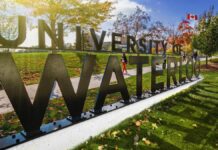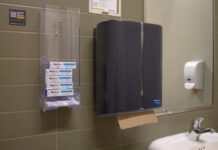The University of Waterloo has partnered with the Abdullah Al Ghurair Foundation for Education to provide for Arab students the opportunity to study STEM courses. UW joins the ranks of eight other universities partnered with the program from around the world, including the U.S., Egypt, and Turkey.
The Al Ghurair Foundation’s STEM Scholars program plans to invest over $1.6 billion CAD over 10 years in scholarships for over 15,000 Arab students. Scholarships are available to Arab citizens seeking degrees in STEM programs, which the foundation sees as an investment in the future of Arab regions.
Ian Rowlands, UW associate vice-president, international expressed the university’s pride in partnering with the Al Ghurair Foundation.
“We’re excited and honoured to be involved and partnering with them, because we see it as a wonderful opportunity to welcome some of their young people here,” Rowlands said. “These young people will enrich the fabric, enrich the culture here at the University of Waterloo, and, also, we’re contributing to building the leadership base in the Arab world, which is the foundation’s key goal for the future.”
Rowlands said the partnership aligns with UW’s strategic plan, which hopes to see UW become one of the most internationalized universities in the world. As part of the university’s goal to “educate globally literate and world-ready graduates,” the university offered collaborative degree programs with 12 other countries and regions in 2016.
In addition, international students account for 16.5 per cent of undergraduate students and 37.1 per cent of graduate students.
For Waterloo’s part, the school offered $21 million in scholarships for international students in the 2015-2016 academic year. However, UW also implemented tuition hikes for international students in both 2015 and 2016, both times raising international student tuition rates by around nine per cent, according to the university’s strategic plan website.
Rowlands concluded by addressing the value of creating an international community at UW.
“We’re aiming to equip our students with an understanding of the world around them, and we’re aiming to enrich the local fabric here with international elements as well,” Rowlands said. “Educating globally literate and world-ready graduates, that’s one of the means whereby we do it, [as well as] the value we get from being recognized internationally for the innovation we bring, in education, in research, and in scholarship as well.”































